On Practicing Liberation
Ahead of the sixth annual Software For Artists Day on July 18 and 19, Willa Koerner spoke with participant Tsige Tafesse, one of the five founders of By Us For Us (BUFU), a Brooklyn-based collective focusing on the discourse of Black and Asian cultural and political relationships. The founders are a collective of queer, femme, Black, and East Asian artists and organizers who emphasize building solidarity, de-centering whiteness, and resurfacing our deeply interconnected and complicated histories. Representing BUFU, she has been invited to speak by various museums and institutions, including most recently the Brooklyn Museum and the Rubin Museum.
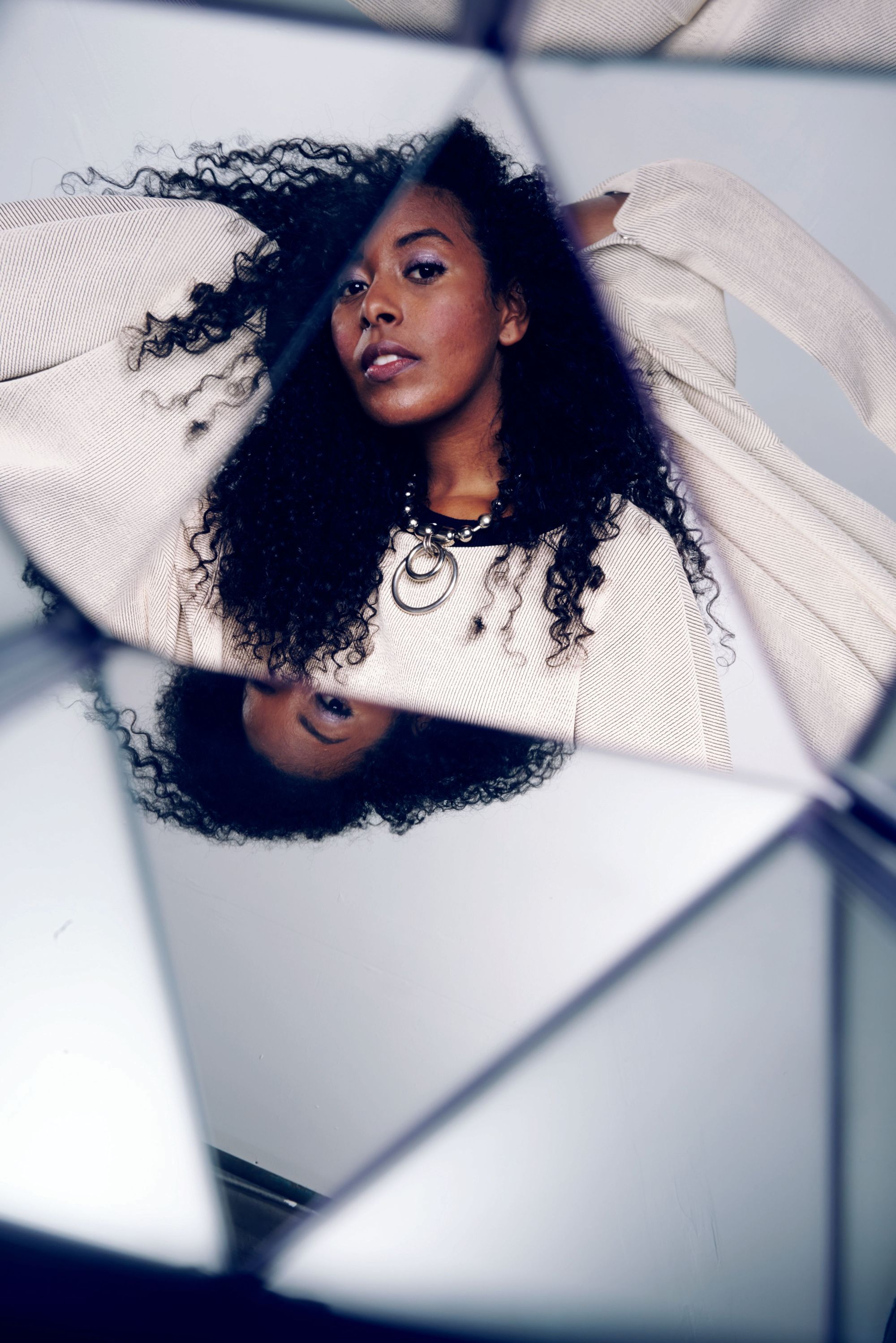
Can you give an overview of what BUFU is, and how it got started?
We're a collective that does whatever we feel is necessary to practice liberation, in many different capacities. We initially started as a collaborative documentary project looking at the relationships between Black and Asian people. This was coming out of the tail end of Black Lives Matter organizing in 2014. Our goal was to give language to our relationships to each other, and also serve as an archive for the intertwined histories of Black and Asian people. We also wanted to foster a platform that could support solidarity in a holistic way, that wasn't just paying lip service, but was deeply examining how we got to where we are today.
There are four co-founders who hold the core of BUFU: Katherine Tom, Jazmin Jones, Sonia Choi, and myself. Initially, there were five of us. Our fifth member, Jiun Kwon, passed away at the start of our project. She's still made present in the legacy of the work—I think her spirit, along with all of ours, is how we've brought the project to what it is today.
Since your practices are so varied, as a group, how do you decide what projects to take on? Is it hard to know what to prioritize?
I'm in constant communication with the collective, and we all know each other really deeply. At this point, we've traveled the world together, and have just been really, really intertwined in each other's lives. We have a group chat that is going off every single day. So, when a project idea comes, it's usually either a response to a resource we’ve been offered, or it’s a response to something that’s happening in the world. Then we’re just like, "How do we invite our community into this process, and try to build something that’s useful?"
Sometimes we're pitching things to each other, but most of the time it's an easy consensus. We also have the gift of a large community network that we've been organizing with and have built a lot of trust with. And they lend their labor, love, and spirit, so most projects come together pretty organically over time.
For the projects that we do, we’ll often host three or four months’ worth of community meetings. The inclusion of our immediate community, and seeing how projects resonate, and then building and growing flexibly from there, is all central to our process. It’s super emergent.
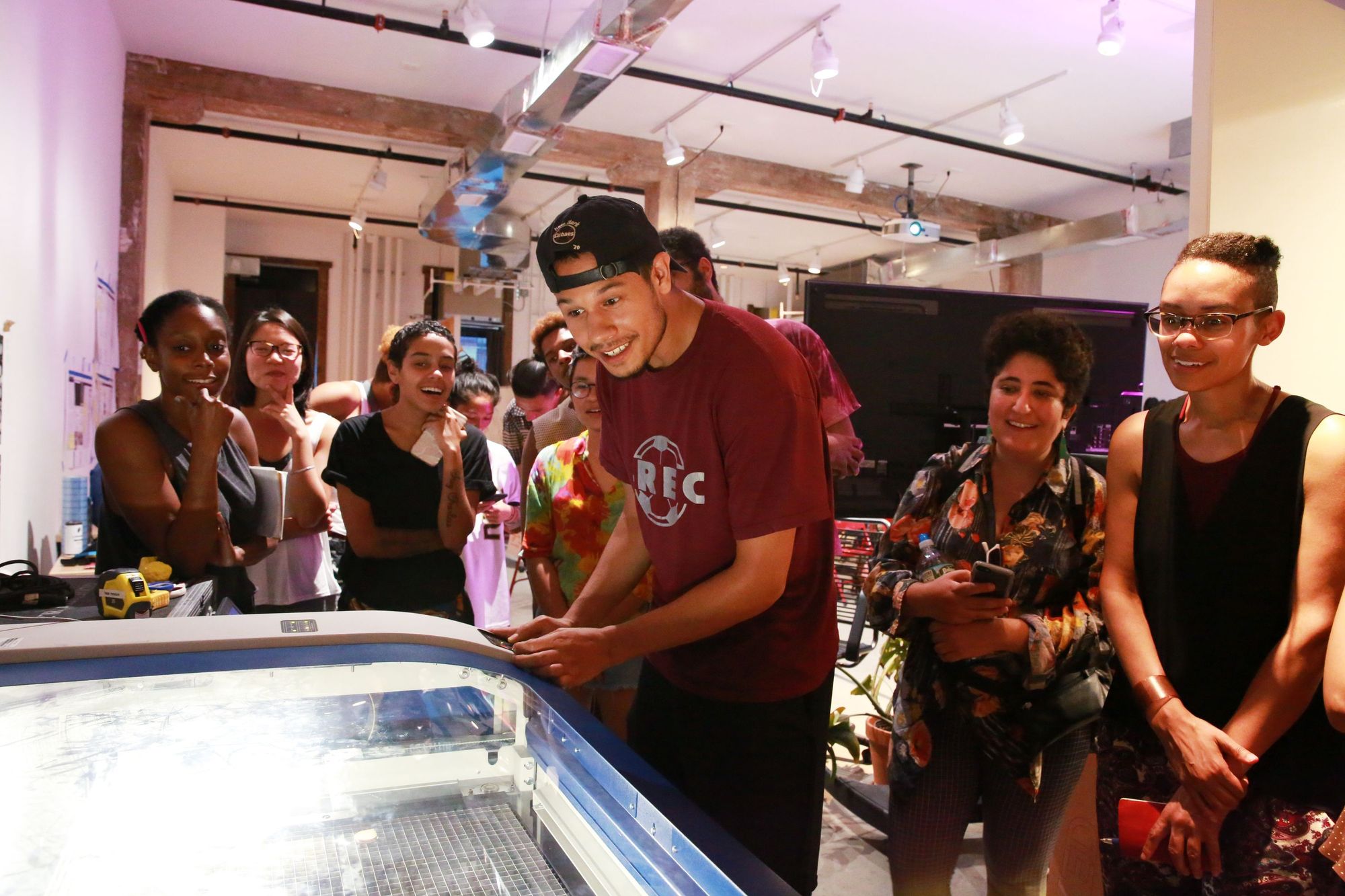
BUFU has now been a collective for over five years. What’s been key to keeping it going?
Recently I’ve been thinking about how grateful I am to be a part of a collective, and not a nonprofit or a corporation or something more formal. For us, our relationships are really at the core of this thing. Also, we have no desire for BUFU to be a project that sustains us financially, which takes a lot of the pressure off. We all have other jobs, or other gigs, so most of the resources that we receive we redistribute. We're also each tapped into different kinds of communities, and each of [the core BUFU team] are artists in our own right. Jazmin is a visual video artist with a whole different video life. Katherine is a healer who does herbal work, and does other organizing. Myself, I do a lot of curatorial projects and art practice-y things. And Sonia is in South Korea, so we're just all in different worlds. Since we each make money and cohabitate in such different spaces, I think that enables BUFU to give us energy, rather than drain us.
Also, what's nice about working as a collective is that it's not structured around capital or capitalism, so we have no need to produce work quickly if we don't feel like doing it. We don't need BUFU to do anything. We just want it to be something that's useful to our spirits and to each other. So I think that really helps, especially now, when we've come together to do a lot of work in response to COVID, but we've also taken time to care for ourselves and find the most strategic ways to respond. It's such a gift to have something that can be flexible with our mental health and how we make, or choose not to make.
What do you feel are the most important elements for successful collective organizing? Is the BUFU collective formalized in any way?
A collective can take the form of a group of friends, a gang of collaborators, an ongoing community project, whatever. For us, it's a mix between being fairly casual as a collective of friends, but also working in incredibly formal ways with co-organizers to make our projects happen. For example, with the last round of the CLOUD9 (Collective Love On Ur Desktop) programming that we did, we formed a bunch of committees. From the very beginning, we were like, "Committees are autonomous, they can do what they'd like. They can check in with us as they go. We'll figure out ways to get them resources. It's a wrap." A principle of adrienne marie brown’s Emergent Strategy is about moving at the speed of trust, and I think that has been central to how we've been organizing for a very long time.
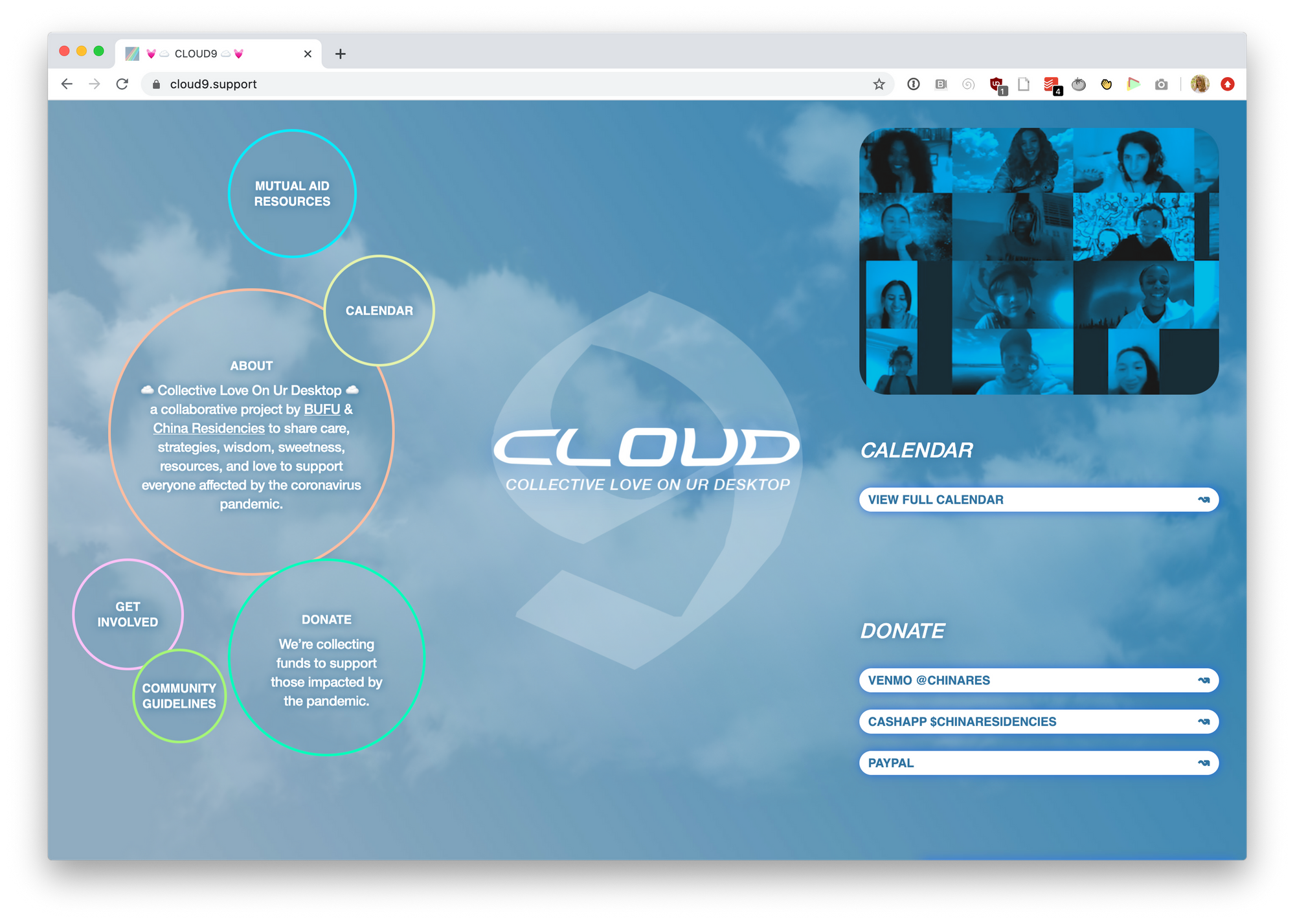
I was looking at the CLOUD9 website, and it’s so beautiful. You can see a video of the project’s collaborators waving from what feels like a sky, and you have a set of community guidelines embedded as a Google Doc with clouds floating around it. It feels almost transcendent in this way where you've cherry-picked digital tools that create opportunities for collaboration and connection, and you’ve brought them together in this beautiful space of mutual-aid.
That website was a collaboration with a whole bunch of people, but was made by Aarati Akkapeddi, Melanie Hoff, Olivia Ross, and Zainab Aliyu. Again, this is what's useful about working in a collective framework. Almost immediately after the stay-at-home order was put in place, we put out a really vague call where we were like, "We're making mutual-aid programs online. Virtual parties. Workshops. Everything." We just put this open call up online, and told people they could apply.
Then, we had a public community meeting with maybe 80, 90 people on it. We were like, "So, we're still not sure what's happening. The world's on fire. We got all these submissions though, so let's go. Let's figure it out." From there, we broke up into various committees, and a tech committee came out of it. People were able to move in and out of supporting the project based on their capacity, mental health-wise and otherwise. How it all came together was really, really beautiful. It felt like love work, with many collaborators moving in and out of the project, picking up where others left off, and learning from each other.
That collaborative, trusting way of working together feels really informative for moving outside of capitalism.
Totally. Also, what I’ve found most valuable about working as a collective is that there's a particular kind of safety in numbers. As a collective, we get to be really audacious. It's not just me trying to organize a whole event series, or yelling at an institution, all on my own. It's my group of friends who have decided to call ourselves a collective and really trust each other, and our community, with this weird brand.
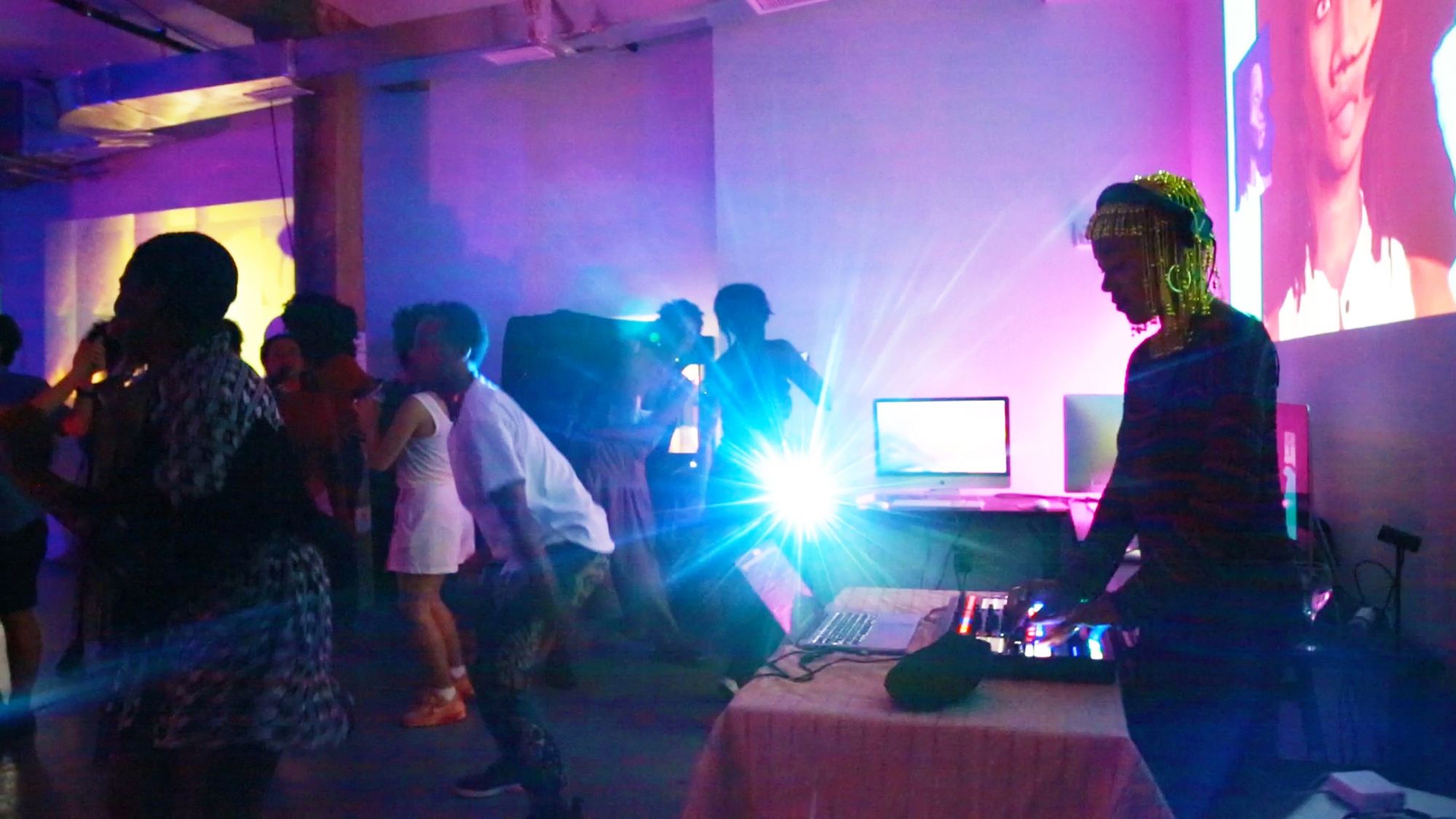
That’s a good point. Creating a brand around a collective, and co-opting institutional aesthetics, gives you a lot more authority just by having things feel more official.
Yeah. You can get a lot from performing that. It's also a kind of trolling, or playing at the absurdity of institutions. Like, for BUFU’s logo, I took the FUBU clothing brand logo, and I put it into an off-brand Microsoft Paint, not even Photoshop. I cut out the BU, and put it in front of the FU. And that is the logo that we still use today.
I'm very pro-disrespecting institutions, or co-opting their authority. Why participate in something that was never built for you to succeed; something that does not care about you? I mean, if our commitment to institutions and capitalism didn't look absurd before, it definitely does now. It looks incredibly silly in the face of what is truly happening in the world, and a lot of that is being exposed in this moment.
In the last couple years, many of our projects have been mock, pop-up institutions. We don't have the resources to create, for example, a decentralized free school across the city, with people teaching around the world. But we do have enough resources to do a small-scale version of that for two months, and to really begin to feel what it would be like to be in a liberatory educational space. We hope this kind of work can help us rethink our relationships to older, more hierarchical institutions. BUFU’s work is about taking baby steps towards practicing this larger theory of liberation, and being able to create within the little pockets that we have access to, until we have a moment like this, when it becomes possible to imagine things at a much larger scale. This is how we can start to seed real transformation.
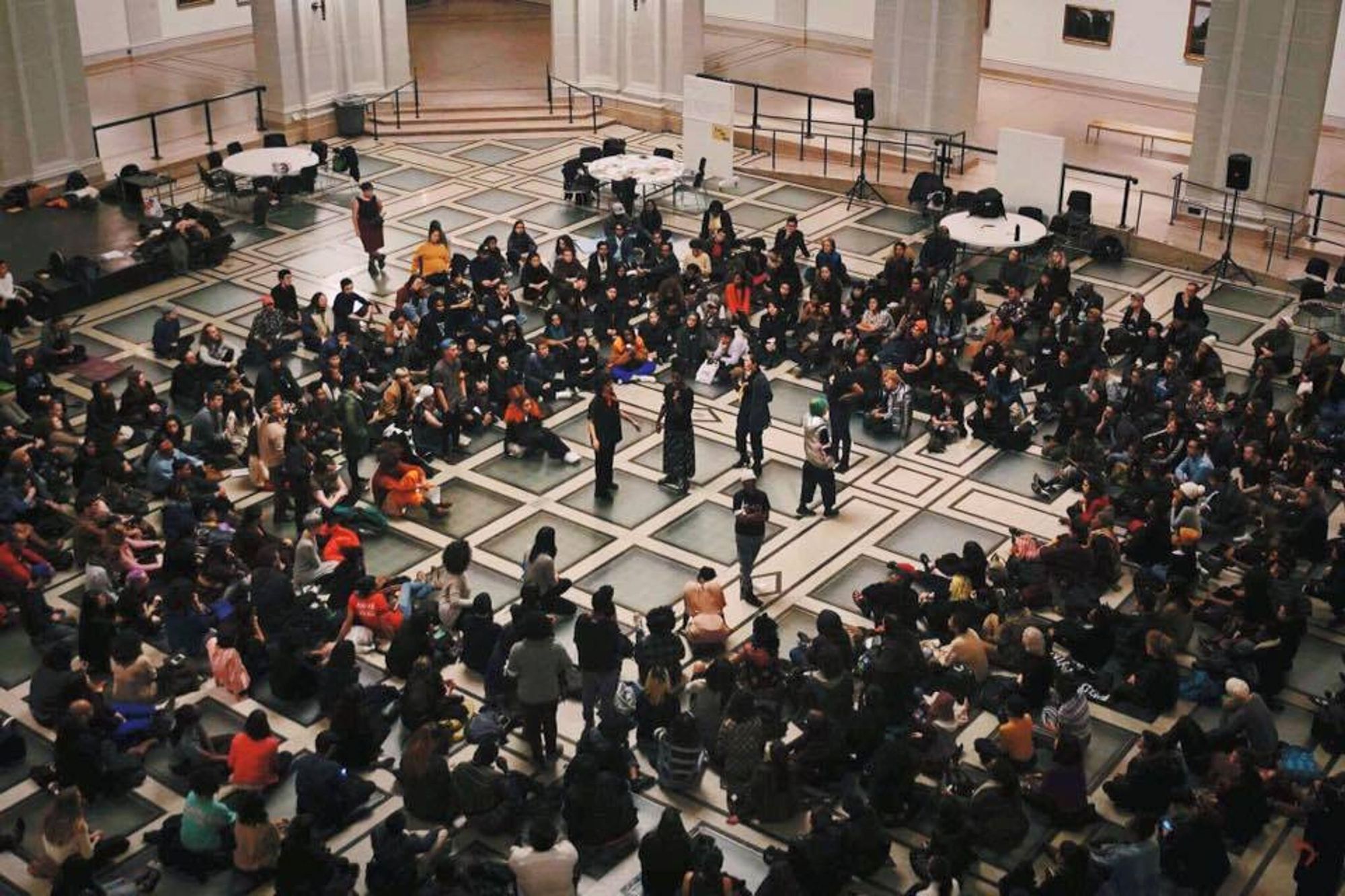
In many ways, you've been modeling a way that collective organizing can happen, so that in moments of movement and transformation, we don't have to waste time wondering what to do. With the rush to organize across digital platforms, do you feel like you’re in a good place to move the work forward—or if not, what’s missing?
I couldn't be more thrilled to see people reallocating their attention and care currency, and reformulating digital technologies and social media to power the movement that's happening right now. But also, there's a part of me that's really disappointed. I think that there were so many folks who were trying to dream up better spaces for us, and it just didn't come together in time. You know what I mean?
For me in particular, there are different projects that I had hoped to have finished by now that I think would've been really useful tools. This moment of apocalypse, this moment of transformation—it just really took us by surprise. And I'm really, really frightened. I can't imagine that it's going to be safe for many of us the way that we're moving. I think some people are trying to teach us better digital security, and better digital hygiene around organizing, but yeah. Going back to being a collective, I feel lucky that I have a group that I can organize with, because I have a lot of fears around being hyper-visible as myself in this moment.
I guess overall, I'm heartened by how people are using Instagram and even TikTok and Zoom to organize. We were never meant to be on Zoom the way that we are, but given the circumstances, it’s what we have. But also, none of these platforms are our friends. I can't wait for the day when many of these social media companies fall. But for now, we use whatever tools we have—with severe reluctance and also fear.
Yeah, we're in a bind with all of these platforms. They're so useful for staying connected, and they’ve been optimized to the point that we’re completely reliant on them. So we've kind of dug ourselves into this hole that was very convenient to fall into. But at the end of the day, you’re right, these platforms are not our friends. What do you think it would take to either improve the tools we already have, or make new ones and get people invested in them?
If ever there was a time to divest from platform capitalism, it’s now. But it's hard, because I’ve tried some of the alternatives, and it's not the same when it's just you and five of your technologist friends on a platform, and no one else. At the same time, almost everybody I know is on Signal now. People have really taken to that platform in a profound way, so I think that there is an interest in rethinking our reliance on these platforms.
I really do think that we’re approaching the last cry of a lot of these sites. When Instagram started posting their Black Lives Matter filters, that looked less like them trying to care for Black people, and more like the platform trying to stay relevant and save itself. And with all these pushes to follow Black people or Black organizations online, I'm waiting for the other shoe to drop. I wonder if in a few more months folks are going to be like, "Why did I follow all these people? Now my Instagram is all this information. I'm tired of caring. This is a lot."
Also, this conversation around big data and surveillance is becoming more and more mainstream. I think it's a very short leap to go from protesting against the police, to taking more of a stance against big data and surveillance, and then to the realization that Instagram is fucking mining your whole life for its own profit.
Totally. Instagram and the police are not so different.
Truly. I really think that this moment is a turning point. It's been really interesting to witness what is starting to feel like the fall of capitalism in many ways. Some people have been very upset with some of these big Instagram influencers who have been staying silent. Personally, I could care less—I don't go to these people for anything. But, I think this shows a divestment from an entire system that Instagram has relied on to make money. It’s been a system of shaming people by creating a want, and a need, and a weird hole to fill. This capitalistic way of relating to each other is disintegrating in this moment. Maybe I'm too hopeful, but I really think it is.
As you lean into this moment, what is your vision for one year from now?
That vision is in the process of becoming clear, and is being made possible in this moment. I've been getting messages from friends, like, "Y'all should get a building. Y'all should have a space." Most of that's coming from our fiscal sponsor, Kira [Simon-Kennedy], who dreams big for us all the time. But, it really has been a long-term plan that potentially we would be able to get a space. And now I'm thinking maybe in a year, we could try to figure out how to establish a space as a longstanding investment in our community.
As a follow-up question, what can people do to support your work?
We haven't put a call out for donations, but some people have been doing fundraisers for us without us asking. In Massachusetts, there was some person who was like, "100% of the proceeds from our CSA this week will go to BUFU." And there was a random person in the Lower East Side with a vintage shop, who donated a percentage of their profits to us. I don't know who these people are, and I don't even know if they've come to a program before. But it does make me wonder if there's a way to get long-standing support for BUFU, in the service of getting us a space that we could function out of long-term.
So yeah, if anyone reading this has a building, or land, we are very deserving and will make good use of it. Give us a building. Let's co-make homes, compounds, farms. The dream is maybe we could have a farm upstate where people could be with land, and then a building in the city where we could have residencies, and run different projects out of, and just exist as a permanent community resource. We don't need money, necessarily. But a building, yeah, that would be it.
What is your advice for continuing to work towards liberation? How do we keep up the momentum and capitalize on the progress that’s already been made?
I implore people to center care in this time. The fight for a more equitable world is a long one, and it can be exhausting, and it can often feel unrewarding or scary. You might feel scared to be wrong, scared to be called out, scared that it's not enough. Despite that, I implore people to keep going, and to not give up. Don't get suckered into the apathy that is so seductive in capitalism. Be brave enough to feel everything in this moment, and to continue to fight.
Subscribe to Broadcast